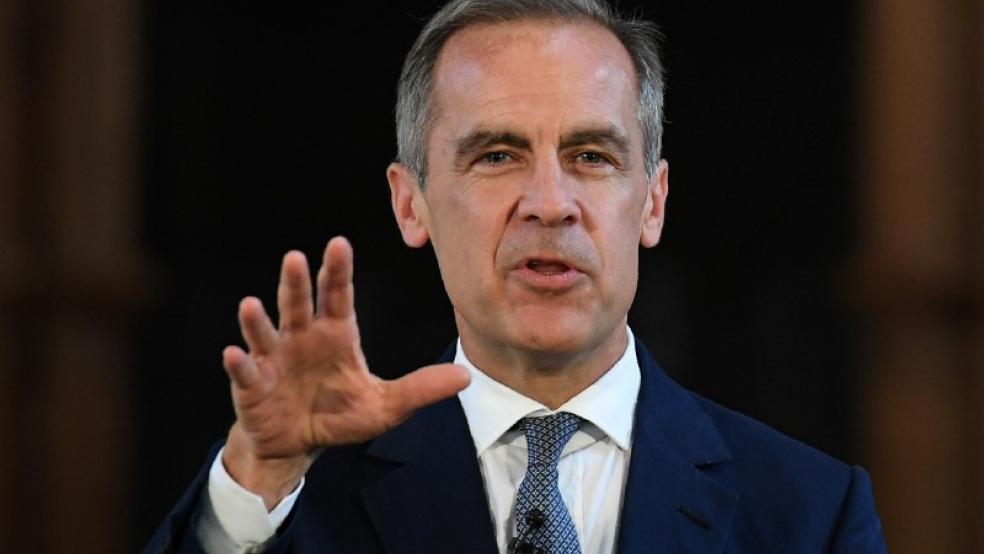LONDON (Reuters) - For a while recently it looked as if the Bank of England might finally be getting ready to raise interest rates, but Governor Mark Carney and most of his top officials seem set to remain in wait-and-see mode when they meet next week.
A run of weak data and deep uncertainty about the impact of Brexit on the economy have cooled the speculation that the BoE is poised to start removing its crisis-level stimulus.Only a few weeks ago the odds in financial markets of a rate hike on Aug. 3 jumped from near-zero to one-in-three.The trigger was a much narrower-than-expected 5-3 vote in June by the BoE's rate setters to keep borrowing costs on hold.For graphic on how the Bank of England's rate-settlers line up click: http://tmsnrt.rs/2uEU8myFor graphic on key issues for Bank of England at August meeting click: http://reut.rs/2w6lmjzSterling and British government bond yields then climbed again when BoE Chief Economist Andy Haldane said he expected to switch his vote in the second half of 2017. More cautiously, Carney suggested he was moving closer to backing a rate hike.After all, raising rates from 0.25 to 0.50 percent would only be a reversal of the emergency rate cut the BoE made in August last year shortly after the Brexit vote shock. Despite the weak run of data recently, Victoria Clarke at Investec said Carney would probably be happy to keep investors guessing about the BoE's plans, even if he were confident that the rate-hike supporters remained in the minority."Maintaining the debate ensures that if he does need to move to raise rates later this year, if domestically generated inflation really starts to move up, then the BoE is not caught out delivering a quick-turn surprise to markets," she said.Economists expect the BoE to push up its inflation forecasts slightly but to lower its projection for growth after the weak start to the year.That is unlikely to help the BoE's hawks, who won't be able to provide much evidence for their case that the lowest unemployment rate in more than 40 years is about to push up wages sharply, or that there has been a pick-up in exports and investment capable of offsetting weaker consumer spending.Furthermore, one of the three dissenters in June has since left the BoE.DOVES STILL IN CONTROLAs a result, most economists expect a 6-2 vote to keep rates on hold, with an outside chance of another 5-3 split if Haldane follows through and changes his vote.Should Haldane switch sides and the Monetary Policy Committee's newcomer Silvana Tenreyro unexpectedly votes for a rate hike too, the 4-4 split would be resolved by a casting vote by Carney who has suggested he is not yet ready for a rate hike.Instead, the BoE might take a baby step next week by not renewing the bank lending incentives that were part of its big stimulus push a year ago, shortly after the Brexit vote shock.The Term Funding Scheme is already three-quarters of the way toward its 100 billion-pound target.The Bank has other options to micro-manage the economy, chiefly its powers to tighten rules for bank lending.While Carney is unlikely to kill off the chance of a rate hike this year, many economists think the window is closing.They say inflation looks set to return to the Bank's 2 percent target in mid-2018 when slower growth will add to the case for keeping rates on hold until 2019, the most likely date for a hike, according to a recent Reuters poll."Once inflation is on the down slope - which we expect soon - we see very little opportunity for the BoE to hike rates," economists at Bank of America Merrill Lynch said in a note to clients. "Indeed, we continue to question whether the next move in rates will be down rather than up." (Writing by William Schomberg; Editing by Hugh Lawson)After rate hike talk, Bank of England set to keep investors guessing

POOL New



